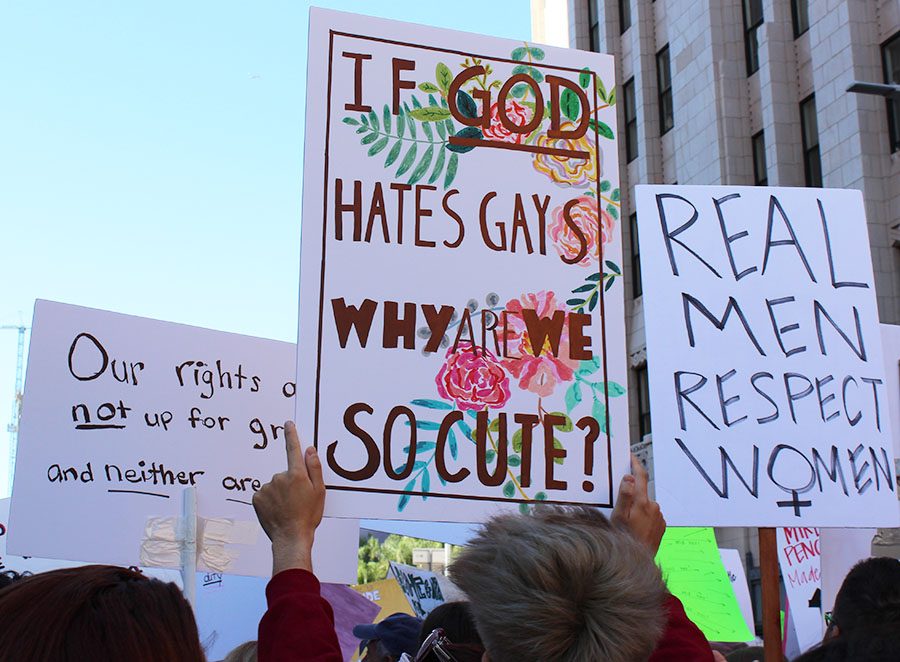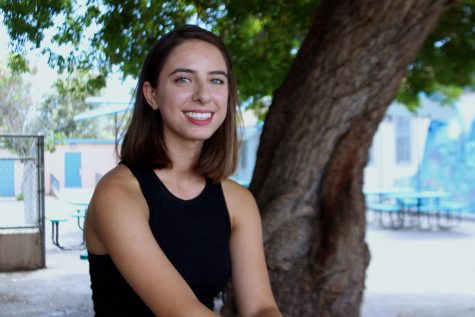2018 Women’s March attracts a crowd eager for change
January 25, 2018
One year ago, we were among the millions of people around the world who marched in fear and uncertainty due to president Trump’s inauguration. On Jan. 20, we came together again, however this time, the Los Angeles Women’s March had a different atmosphere.
“We have spent the last year enduring and resisting leadership of those who do not believe in truth,” said Lorri Jean, CEO of the Los Angeles LGBT Center, during a speech at City Hall. “Who do not believe in compassion, who do not understand that a strong nation requires liberty and justice for all. So we march again.”
What began as a worldwide protest against social inequality, grew into an inclusive platform for all genders to unite and advocate for human rights. Last year, after attending the Women’s march, although we felt empowered, we struggled to find ways to get involved and create change. This year, the march developed into a more organized event with new resources and ways to participate that go beyond a one day march.
We learned of new ways to get involved when we entered an area where different organizations had set up booths to distribute information and rally supporters. A common emphasis among the various organizations was the importance of voting, especially in the upcoming midterm elections. A lot of people our age are not aware of how much our votes matter, but on Nov. 6, we have the power to elect officials that will contest the Republican control of the House and Senate. We felt motivated after realizing that our generation can finally have a say in our future.
“Our silence never protects us,” Jean said. “Change does not happen on its own. We must do whatever we can to take this power to the polls. All of us who can vote must vote. We must vote on our values of truth and compassion and justice.”
The greater sense of organization was only one of the reasons that this march felt like the beginning of a groundbreaking movement. Despite all the adverse policies and developments implemented under the Trump administration, there have also been new opportunities for women to speak up and inspire one another. Popular movements such as #MeToo and #TimesUp were a prominent focus at the marches. It was comforting to be surrounded by people who felt the same frustration and resentment towards the injustices that have been impacting women, people of color, immigrants and the LGBTQ+ community.
“Because of you the revolution (is on) the rolling,” said Natalie Portman, a guest speaker at the Women’s March. “You told the world that time’s up on violence. You told the world that time’s up on silence. You told the world that it’s time for a new day, time for a new locker room culture, time to think about every person’s desires, needs, wants and pleasure.”
The Women’s March introduced us to a welcoming community that allows us to confidently speak our minds and become more socially aware of the inequality that others face. A year ago, we were a part of a crowd filled with fear and anxiety, but this year, hope and optimism united us all. While there is still a long road ahead of us, with relentless determination and effort, we can create an America for everyone.
“You are showing everyone around here where you stand,” actress and activist Eva Longoria said. “You stand with women and girls. Today we march. Tomorrow we march on.”



















